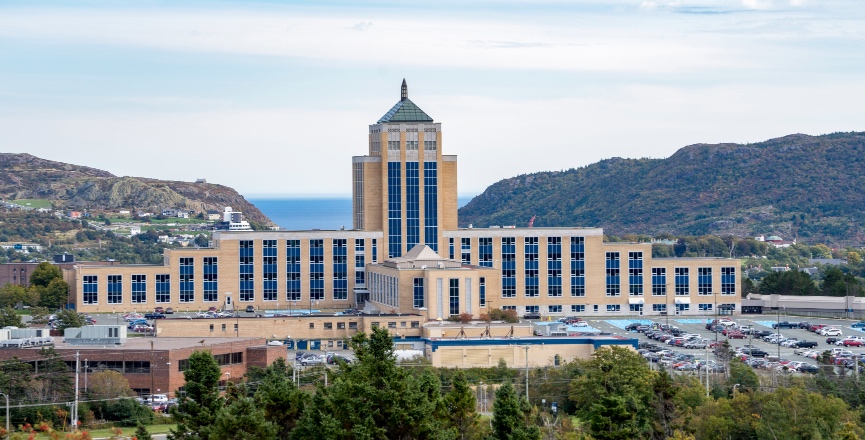Dwight Ball’s Liberal party is expected to form a minority government after winning 20 of 40 seats in Newfoundland and Labrador’s provincial election Thursday night; uncharted territory for the province. The PCs won 15 seats, the NDP won 3, and two former members of the Liberal caucus were re-elected as independents.
PC leader Ches Crosbie said that he is not conceding defeat and spoke about the possibility of forming a coalition with the NDP and two independents. “The Ball Liberal government will not survive the next year,” he told supporters in a speech Thursday.
Crosbie also questioned the ability of Lieutenant-Governor Judy Foote to make an impartial decision around government formation. Foote was previously a federal Liberal MP and was accused of campaigning during the election.
Several polls suggested a PC lead just prior to the election. The Liberals had called an early election after months of maintaining relatively strong support, having much recovered from marked unpopularity during a wave of anti-budget and anti-austerity protests that swept the province in 2016.
The NDP also appeared to make quite unexpected gains, though their margin of victory in Labrador West was by only five votes, meaning a mandatory recount will take place.
NDP leader and MHA-elect Alison Coffin had faced a challenging electoral map, with her party only able to place candidates in 14 out of 40 districts. Coffin was acclaimed as party leader in March after former leader Gerry Rodgers’ surprise announcement that she would not seek re-election. The NDP led in one poll from May 2016 in the wake of that year’s widely unpopular budget, but has struggled since, having faced scrutiny over perceived infighting recently and in 2013.
NDP MHA-elect Jim Dinn, newly elected in St. John’s Centre, Rodgers’ former district, was pleased with the apparent gains when reached by rabble.ca Thursday night.
“It was a long four weeks but it was a very well-run campaign and a very positive outcome,” he said.
“Very positive, ecstatic in the sense that people were counting the NDP down and out but at the same time it looks like we have two elected and possibly a third. So, you know what? That’s a very positive outcome. It’s an opportunity, now, to keep building with the NDP and attract new members and to make it a stronger and even better party.”
Dinn believes that his party has what it needs to be better prepared in the next election.
“We’ve got a large group of young members who are enthusiastic, who are seeking a province and an economy that’s going to offer them a future”, he said. “From my point of view, we’ve got the necessary ingredients to make it work and to build a better party.”
Past NDP candidates, such as George Murphy and Nicole Kieley, had shifted their support and run for the Liberals, and some members expressed frustration with how nomination plans were handled in St. John’s East-Quidi Vidi, one of the party’s few districts with notably concentrated support.
New to the electoral landscape was NL Alliance, whose leader Graydon Pelley expressed that the prospect of a minority government was a positive for the province’s democratic outlook.
“I said that if NL Alliance couldn’t get people elected, that a minority government would be the best situation for Newfoundland and Labrador right now. Because majority governments have not served us well in the past.”
Pelley’s party has emphasized a need for electoral and democratic reform. In the past, the province has struggled with low voter turnout and perceptions of a weak civil society, while this election was also marked by shadowy social media campaigns, confusion over advance polling in the town of Nain, and criticism of the early election call.
“We’re not just going to get a majority government to push all the things through that they want to do. Now there’s going to be accountability, there’s going to be questions, they’re going to make sure that they’ve done the work that needs to be done,” Pelley said.
“In a minority government, you can’t just do what you want to do because you have the majority. You’ve got to talk, you’ve got to collaborate with the other parties in the house of assembly and you’ve got to work together.”
If re-elected independents Eddie Joyce and Paul Lane were able to re-join the Liberal caucus it could help the Liberals narrowly enter majority territory, however.
While the NL Alliance itself did not win any seats, Pelley went on to express hope that parliamentary parties will face new pressure to work together collaboratively. Pelley also highlighted a need to enforce greater openness and access to information in government, to loosen party discipline, and to reduce political donation limits.
“I’m hoping that this will cause the people that are in the house of assembly to work together, to come to decisions together: a true representation of the people that put them there and be able to make decisions based on what the wishes and the desires of what the people are.”
Eventually, Pelley said, political donations by large unions or large corporations should be eliminated. Such bans have been previously enacted in some provinces.
“People that desire to get involved in politics, they need to have more of an even playing field. Because we’ve always seen that it’s a rich man’s game and it seems that you’ve got to be rich to run in politics. And that needs to stop. Because we lose the input and the involvement of so many valuable people from Newfoundland and Labrador.”
Cory Collins is a contributor to rabble.ca, Ricochet, The Independent (of Newfoundland and Labrador) and other publications.
Photo: Shhewitt/Wikimedia
Help make rabble sustainable. Please consider supporting our work with a monthly donation. Support rabble.ca today for as little as $1 per month!





